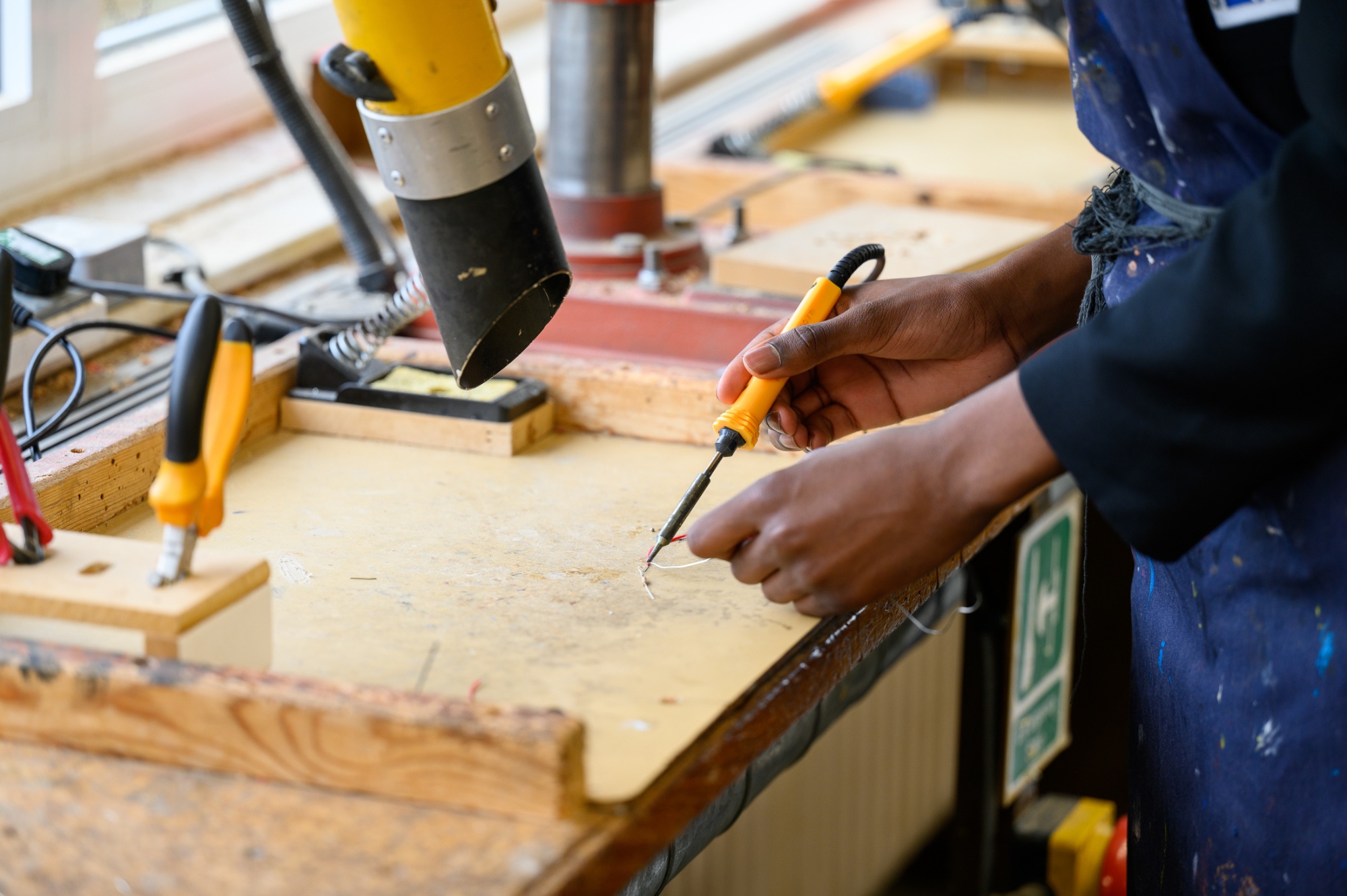BTECs - what are they?
If you’re looking to study in a practical, hands-on way, BTECs may be the right choice for you. This guide busts some of the most common myths around BTECs to help you decide.
BTEC stands for the Business of Technology Education Council. BTECs are work-related - also called ‘vocational’ - qualifications, so they prepare you for a specific job or industry.
When you’re studying a BTEC, you’ll learn from a mixture of practical sessions and theory. For this reason, BTECs are a good alternative to A-Levels if you want to spend less time in the classroom and more time learning skills.
Myth 1: BTECs are only for jobs ‘out and about’, like farming or construction
You might be surprised to learn that there are actually over 2,000 BTEC qualifications available, across 16 career sectors! These include:
-
Animal management
- Engineering
- Applied law
- Performing arts
- Health and social care
Myth 2: If you study BTECs, you can’t study other qualifications at the same time
This is not always true. Many schools, sixth forms, and colleges offer part-time BTECs alongside (or instead of) other qualifications like GCSEs, A-Levels, and Highers.
This means that you could be studying both vocational and academic courses, which might be a good choice if you’re not sure what you want to do after school.
However, if you’re studying a Level 3 BTEC, the time needed to complete the qualification may be too demanding for you to study other things at the same time (see below).
Myth 3: All BTECs are equivalent to the same number of A-Levels
Not true! You can take BTECs at different levels, and this will determine how many GCSEs or A-Levels the qualification is equivalent to.
There’s BTEC Firsts, which can be studied from entry level up to Level 2, which is a similar level to GCSEs or National 4s/5s. Then at Level 3 (college or sixth form level), you can study BTEC Nationals. When it comes to equivalents for these, universities see it this way:
- the Level 3 Extended Diploma is equivalent to three A-Levels
- the Diploma is equivalent to two A-Levels
- the Certificate is equivalent to one A-Level.
So if you take an Extended Diploma, it’s unlikely that you can study any additional A-Levels or other courses at the same time. However, if you take the Certificate, you will need to plug the gap with one or more A-Levels.
Remember, although some BTECs are worth UCAS points, you’ll need to check the entry requirements of the specific course if you’re interested in going to university to make sure you’ll be eligible.
Myth 4: BTECs are the same as apprenticeships
This isn't true, but it's easy to get confused.
Like apprenticeships, BTECs are a more practical way to learn, and some of them involve work experience. However, unlike apprenticeships, BTECs are not usually an ‘earn as you learn’ option - so you won't get paid as you study one. You also have to be 16 or over to study an apprenticeship, whilst you can study BTECs at Level 2.
To make things more confusing, you can also now study BTEC Apprenticeships! You can in fact study these at Levels 2 - 5 and they're available in over 25 different career areas.
That's not forgetting T Levels. These are a technical qualification which tend to involve a much longer industry placement than their equivalent level BTECs. Check out our simple guide for more on these.






